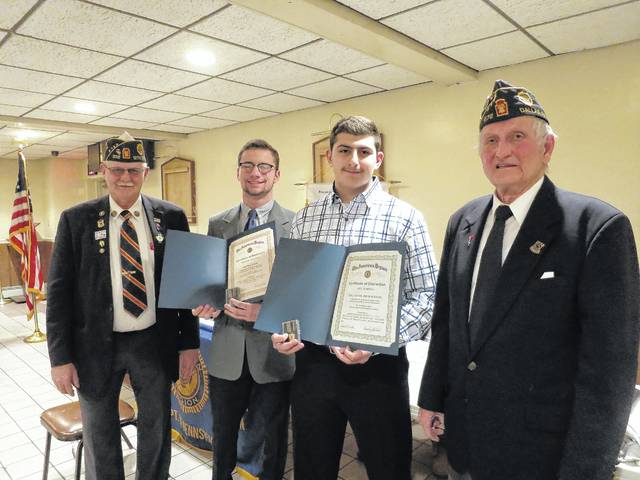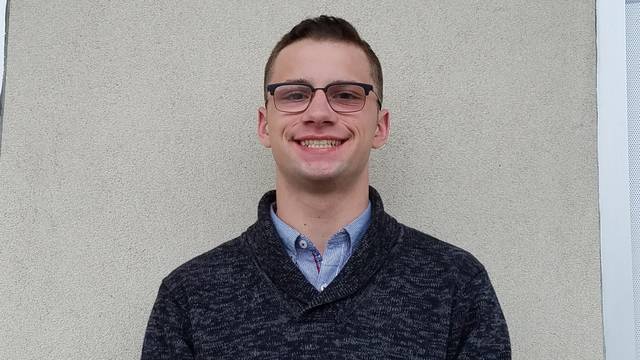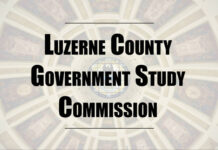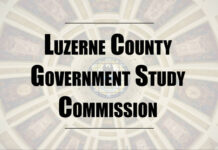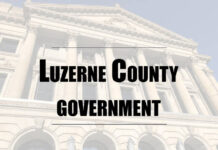DALLAS — Most politicians only try to please their constituents to be re-elected again, Issa Dahal said in his American Legion Oratorical Contest speech.
“They look to us for the answers, while we look to them for the answers,” the Dallas High School senior said. “We expect them to be both ‘superman and the average citizen,’ but the truth is they are not both. They are scared to make a move because they are scared of how we will react to it.”
Dahal’s interpretation of the U.S. Constitution’s First Amendment and how it gives the public the ability to voice opinions to guide elected officials to create public policy earned the 17-year-old $4,000 and third place in the American Legion’s Oratorical Contest state competition in March.
The Oratorical Contest is an annual event that tests students’ knowledge of the Constitution, said Clarence J. Michael, Daddow-Isaacs American Legion Post 672 oratorical chairman and historian. High school freshmen through seniors are invited to participate in the local competition at the Daddow-Isaacs American Legion Post 672 in Dallas in February.
“The contest is designed to bring the Constitution to light,” Michael said. “These kids will be voting when they turn 18, and they should know something about the Constitution.”
Dahdal and his local rival and friend Joe Ciccia, of Lehman Township, have competed in Post 672’s event for the past three years.
The teens began preparing for the contest during the summer months and by October were ready to register.
“We need to have an 8-10 minute speech on a topic of the Constitution prepared,” said Ciccia, a homeschooled senior. “Then you also have to prepare a speech on four pre-assigned topics on an Amendment or section of the Constitution.”
One of the four topics will be chosen the day of the competition, Ciccia said.
Dahdal’s speech on the First Amendment dipped into the nation’s past for examples of grassroots movements that created a major change in laws as well as provided modern day examples.
“Under Amendment 1, we the people have the right to freedom of speech, freedom of the press, the right to assemble, protest, and petition the government for a redress of grievances,” according to Dahdal’s speech.”While this may seem underwhelming, many of America’s greatest achievements happened because of this First Amendment.”
The Civil Rights and Women’s Suffrage movements are examples of the effect of when constituents voice a need for change, and legislators followed suit, Dahdal said in his speech.
“In these movements, they utilized their rights in order to have their voices heard, something we believe cannot be done. We must learn our rights that were given to us by the Constitution and the Amendments. For if we fail to remember, then we cannot fix any issue,” his speech stated.
Dahdal also advised voters to tap into their rights to address local issues, calling local elected officials for concerns such as fixing a pothole on a heavily traveled road or problems with the educational system.
“Our government is much more than that in Washington, D.C. We are a federalist government, one of the most unique governments in all the world,” he said in his speech. “This type of government can respond to our issues much faster than any other form of government in the world.”
“Yet, we as American citizens have forgotten this piece of information.”
Dahdal also theorized the public’s lack of using the First Amendment to guide legislators has allowed elected officials to govern unchecked.
“Lack of participation has caused our government to deviate from their original boundaries,” according to his speech. “Our carelessness, our negligence has led us to this current political crisis. We, as Americans, are tired of these policies, or lack thereof. We want reform to happen. We want issues like immigration, welfare, economy, job security, North Korea, and Russia solved. But how can these issues be solved if we simply only vote?”
Dahdal practiced his nearly 10-minute long speech with his mother Ehssan and father Bader to ensure he hit all of his talking points as well as mastering voice projection before the state competition at the Forum in Harrisburg in March.
“It was a really large venue,” he said, noting there was no microphone.
During rehearsals, Dahal found himself almost yelling his speech.
Ciccia advanced from the local Post 672 Oratorical Contest to the district competition.
“I have made it to Districts with Issa,” Ciccia said. “Issa has beaten me every time. He is a phenomenal speaker.”
In his speech, Ciccia debated the purpose of the Third Amendment, which states, “No Soldier shall, in time of peace be quartered in any house, without the consent of the Owner, nor in time of war, but in a manner to be prescribed by law.”
Ciccia argues when the U.S. Constitution was written in the 18th century, laws were enforced by the British military.
“In this sense, the modern police officer could be paralleled to a British regular,” Ciccia’s speech states. “Although the literal meaning of the Amendment only applies to the military, we must look at the context in which the document was written.”
Dahdal and Ciccia will not be eligible to compete in the 2018 Oratorical Contest as the young men will start their college careers in the fall.
Dahdal plans to use his prize money to fund his enrollment at King’s College in Wilkes-Barre where he plans to study politics, then transfer to Villanova University near Philadelphia to become a “constitutional lawyer.”
Ciccia plans to attend Pennsylvania College of Technology for welding. He also plans to study political science or engineering.
Both Ciccia and Dahdal offer their Oratorical Contest successors a bit of advice — read the U.S. Constitution and prepare speeches early.
